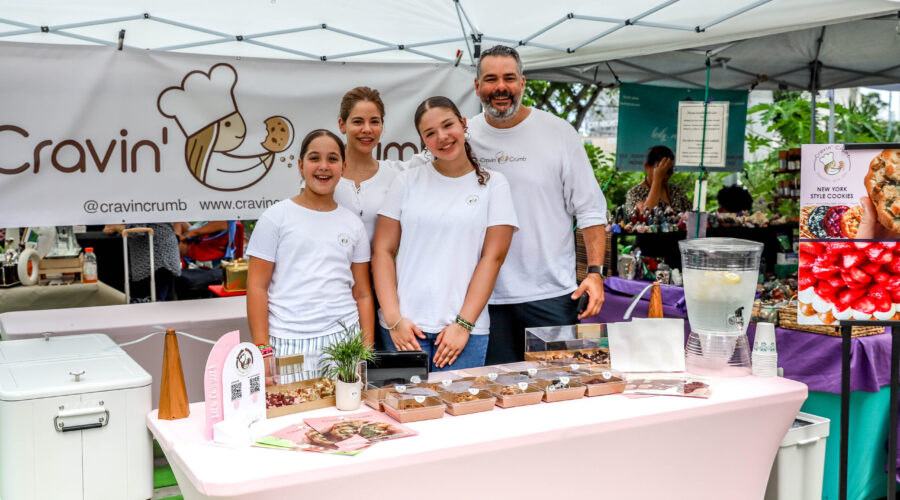The Complete Compliance Checklist for Farmers Market Vendors
Introduction
Ensuring every vendor at your farmers market meets legal and safety requirements isn’t just best practice—it’s mandatory. Non-compliant vendors can result in fines, forced shutdowns, and reputational damage. This comprehensive compliance checklist covers all federal, state, and local regulations your vendors must satisfy. Use it to vet applicants, streamline onboarding, and safeguard your market’s integrity.
1. Business Registration & Tax Requirements
Every vendor—food, craft, or service—must operate under a legally recognized business entity and pay appropriate taxes:
- State Business Registration
- Register an LLC, corporation, or DBA with the Florida Division of Corporations (Sunbiz)
- Obtain an EIN (Employer Identification Number) from the IRS for tax filings
- Miami-Dade County Business Tax Receipt (BTR)
- Vendors must secure a BTR in the correct classification (food service, retail, personal service). Apply online or in person
- Sales & Use Tax Permit
- Registered with Florida Dept. of Revenue to collect 7% state sales tax (plus local surtaxes). Remit monthly or quarterly.
Internal Links:
- Download our Vendor Resource Guide
- View our Vendor Management Services
- Access the Vendor Application Portal
- See upcoming market dates on our Events Calendar
2. Food Safety & Health Department Compliance
For any vendor handling, preparing, or serving food and beverage:
- Retail Food Establishment License
- Permanent brick-and-mortar operations must hold a Retail Food Establishment license from the Florida Department of Health.
- Temporary Food Service Event Permit
- Each market appearance requires a temporary permit (valid 14 days) for pop-up food vendors. Must be applied for at least 10 business days in advance.
- Mobile Unit (Food Truck) Permit
- Includes inspection of cooking surfaces, hand-washing facilities, waste disposal, and potable water systems. Certificate must be displayed on vehicle.
- ServSafe or Equivalent Certification
- At least one person on-site must have a certified food protection manager credential.
- Allergen Labeling & Allergen Awareness
- Vendors must post major allergens clearly and provide ingredient lists upon request, per FDA Food Allergen Labeling and Consumer Protection Act.
3. Fire Safety & Equipment Standards
Vendors using open flame, high-heat equipment, or propane must meet fire code requirements:
- Fire Marshal Approval
- Inspection and sign-off by Miami-Dade Fire Rescue for grills, fryers, and propane systems.
- Propane Tank Permits & Leak Tests
- Tanks exceeding 2.5 pounds require monthly leak tests and permitted storage.
- Portable Fire Extinguishers
- Minimum 2A:10B:C-rated extinguisher within easy reach of cooking equipment.
- Generator & Electrical Safety
- Generators must meet EPA emissions requirements and have GFCI-protected outlets. Cords must not create trip hazards.
4. Insurance & Liability Coverage
Robust insurance protects vendors, organizers, and attendees:
- General Liability Insurance ($1M minimum)
- Covers bodily injury and property damage. Policy must name the market organizer as an additional insured.
- Product Liability Insurance
- Recommended for edible and cosmetic products to cover claims like allergic reactions.
- Auto & Equipment Insurance
- Food trucks require commercial auto coverage; rented equipment (tents, heaters) should have rental insurance.
Internal Link: Learn about our Vendor Insurance Program
5. Peddler & Solicitor Licenses
Non-food vendors selling goods in public spaces need peddler permits:
- Peddler’s License (County Level)
- Allows sales on sidewalks, parks, or public right-of-way. Exemptions apply within privately leased market spaces.
- Special Solicitor License
- Required for vendors collecting donations or selling on behalf of nonprofits.
6. ADA Accessibility & Signage Requirements
Inclusive markets serve all customers:
- Aisle Width & Booth Accessibility
- Minimum 3-foot wide aisles and clear entrances to accommodate wheelchairs.
- Accessible Checkout Counters
- At least one counter section is no higher than 36 inches.
- Signage Legibility
- Vendor signs must use at least 1-inch high letters with high-contrast backgrounds.
7. Waste Management & Environmental Compliance
Maintaining a clean market environment:
- Trash & Recycling Stations
- Vendors must separate recyclables, compostables, and landfill waste.
- Food Waste & Composting
- Encourage vendors to partner with local composting services or donate surplus.
- Single-Use Plastic Reduction
- Incentivize compostable or reusable service ware; discourage polystyrene cups and utensils.
8. Required Documentation & On-Site Verification
Streamline inspections with a standardized checklist:
| Document | Requirement | Verification Method |
|---|---|---|
| Business Tax Receipt | Annual renewal | Digital or paper copy on-site |
| Sales Tax Permit | Must be valid and displayed | Visual inspection |
| Health Department Food Permits | Temporary or mobile permits | Posted at booth |
| ServSafe Certification | At least one on-site certified manager | Copy of certificate |
| Insurance Certificates | General, product, auto – additional insured | Signed ACORD 25 form |
| Fire Marshal Approval | Grilling and propane usage | Posted permit |
| Peddler’s or Solicitor’s License | For non-food sales in public right-of-way | License displayed |
| ADA Accessibility Plan | Compliance with aisle width and signage | Market layout diagram |
| Waste Management Plan | Trash, recycling, compost agreements | Vendor agreement |
Internal Link: Download the full Vendor Compliance Checklist
9. Digital Compliance Tracking & Reporting
Leverage technology to reduce paperwork:
- Vendor Management Software
- Platforms like VendorRegistry or custom portals for upload and expiry alerts.
- QR-Code Document Access
- Vendors scan their badge to display permits and insurance on a mobile dashboard.
- Automated Renewal Reminders
- Email and SMS notifications 60 days before expiry to avoid last-minute lapses.
Internal Link: Explore our Tech Solutions for Vendor Management
10. Ongoing Training & Education
Keeping vendors up-to-date ensures long-term compliance:
- Annual Workshops
- Host sessions on food safety updates, ADA requirements, and fire code changes.
- Onboarding Webinars
- Walk new vendors through application, documentation, and on-site protocols.
- Resource Library
- Maintain a digital repository of guides, template forms, and how-to videos.
Internal Link: Access our Vendor Training Portal
Conclusion
Compliance is the backbone of a safe, successful farmers market. By following this complete checklist—from business registration to ADA accessibility, waste management, and digital tracking—you’ll minimize risk, maintain regulatory adherence, and create a trusted environment for vendors and visitors alike. Combine these steps with Unite Worldwide, Inc.’s comprehensive vendor management solutions to streamline processes and focus on what matters most: delivering exceptional market experiences.
🚀 Get started today:
- Download the Vendor Compliance Checklist
- Schedule a demo of our Vendor Portal
- Join our Vendor Community
- Explore Venue Services for end-to-end support


